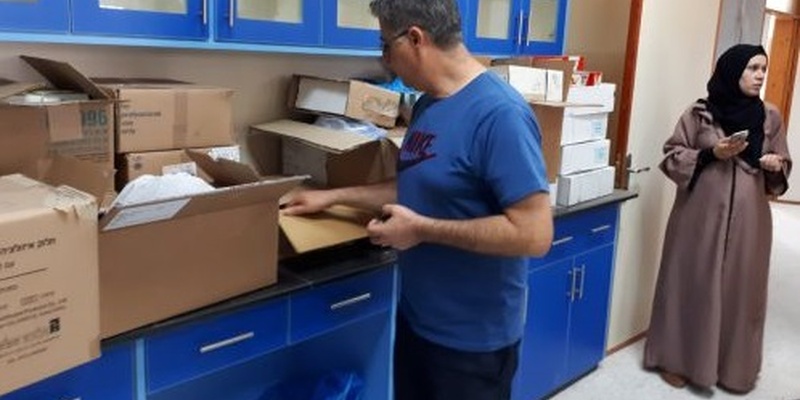Big steps made in developing phytosanitary capacity in the West Bank and Gaza Strip
Posted on Jue, 20 Sep 2018, 08:17

A new plant health diagnostic laboratory was set up in Jenin as part of efforts to strengthen phytosanitary capacity. ©FAO/S.Brunel
Ramallah, 16 August 2018 - Plant pests and diseases easily cross borders and it is therefore crucial to develop phytosanitary capacity worldwide. To help do this, the International Plant Protection Convention (IPPC) Secretariat has developed the Phytosanitary Capacity Evaluation (PCE) - a management tool designed to help countries identify strengths and gaps in their existing and planned phytosanitary systems.
The Plant Protection and Inspection Services (PPIS) of Palestine, with supervision from the IPPC secretariat, undertook a successful PCE in 2014 which led to the development of an approved National Phytosanitary Action Plan (NPAP) in 2015. Big strides were taken in a short time and by August 2018 the following results had been achieved:
- A draft phytosanitary law and by-law were developed together with all relevant stakeholders. The law is expected to be implemented by the end of 2019.
- A plant health diagnostic laboratory was set up in Jenin, staff were trained to diagnose several types of pests and a pest diagnosis strategy was being prepared.
- The PPIS was thoroughly restructured resulting in a new organigram and approved budget.
The IPPC Secretariat is currently working with the PPIS to prioritize activities and develop an action plan to meet the objectives of the NPAP 2015-2021.
Note: Ms. Sarah Brunel, an Implementation and Facilitation Officer at the IPPC Secretariat conducted the PCE follow up mission from 12-16 August, 2018 as requested by the FAO Office for the West Bank and Gaza Strip (FAOGZ).

